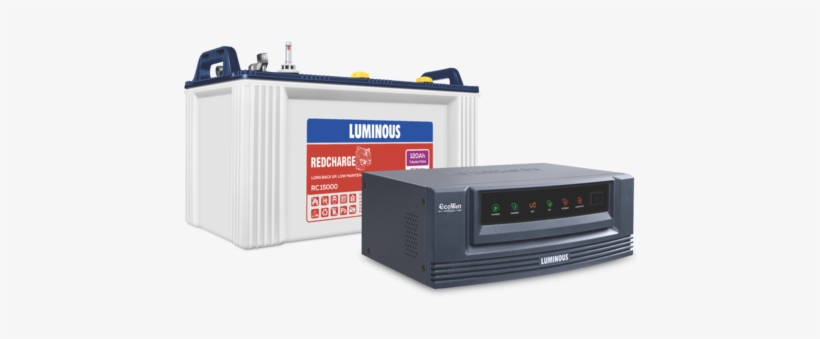Power Up: Unleashing the Potential of UPS Batteries for Ultimate Reliability
Power Up: Unleashing the Potential of UPS Batteries for Ultimate Reliability
Blog Article

In an increasingly digital world, the reliability of power supply systems has become more critical than ever. Uninterruptible Power Supply batteries, commonly known as UPS batteries, play a vital role in ensuring continuous operation during power interruptions. Whether for a small home office or a large data center, these batteries are essential for maintaining the integrity of sensitive electronic equipment and preventing data loss.
Understanding the full potential of UPS batteries can significantly enhance operational efficiency and increase peace of mind. By providing backup power during outages, filtering voltage fluctuations, and ensuring a stable supply, these batteries serve as a lifeline for businesses and individuals alike. In this article, we will explore the features, benefits, and best practices for maximizing the performance of UPS batteries, ultimately unleashing their potential for ultimate reliability.
Understanding UPS Battery Technology
Uninterruptible Power Supply (UPS) systems are essential for providing backup power during outages, and the technology behind UPS batteries plays a crucial role in their effectiveness. Typically, these systems use lead-acid or lithium-ion batteries, each with its unique advantages and limitations. Lead-acid batteries are cost-effective and well-established, making them a common choice. In contrast, lithium-ion batteries offer higher energy density, longer lifespan, and faster charging times, which are increasingly desirable for modern applications.
The performance of UPS batteries is paramount in ensuring that critical systems remain operational during power interruptions. Factors such as discharge rate, charge cycles, and temperature control significantly impact battery reliability. For instance, maintaining the optimal temperature range can extend the life of lead-acid batteries, while lithium-ion batteries require sophisticated battery management systems to ensure safety and efficiency. Understanding these characteristics helps in selecting the right battery type for specific needs.
Regular maintenance and monitoring of UPS battery health are also essential to maximize reliability. This includes checking for physical damage, measuring the state of charge, and performing load tests. Many modern UPS systems incorporate advanced monitoring features that provide real-time data on battery performance, allowing for proactive management. By ensuring that UPS batteries are well-maintained and monitored, businesses can safeguard their operations against unexpected power failures.
Benefits of UPS Batteries for Reliability
UPS batteries are essential for ensuring that critical systems remain operational during power interruptions. One of the primary benefits is the protection they provide against data loss and hardware damage. When a power outage occurs, a quality UPS battery can immediately take over, supplying power and allowing users to save their work and shut down equipment safely. This feature is particularly crucial for businesses that rely on constant uptime, as it mitigates the risks associated with unexpected disruptions.
Another significant advantage of UPS batteries is their ability to improve the quality of the power supply. They not only provide backup power but also regulate voltage levels, which helps prevent damage to sensitive electronic equipment. Fluctuations in power can lead to malfunctions or reduced lifespan of devices. By smoothing out these inconsistencies, UPS batteries enhance the reliability of the entire system, ensuring that equipment operates efficiently without the risk of damage.
UPS Uninterrupted Power Supply
Furthermore, the use of UPS batteries can lead to increased productivity in both personal and professional environments. With a reliable power backup system in place, users can work without the fear of interruptions, knowing that their devices will remain functional during outages. This peace of mind encourages a more productive workflow and can significantly reduce downtime. Whether in a home office or a corporate setting, UPS batteries prove to be a vital investment for maintaining reliability in daily operations.
Best Practices for UPS Battery Maintenance
To ensure the longevity and reliability of UPS batteries, regular maintenance is essential. Start by conducting routine visual inspections to check for any signs of swelling, corrosion, or leakage. These physical indicators can signal potential issues that may affect the battery's performance. Keeping the battery terminals clean and free from dust can also help maintain a good connection and prevent power loss.
Another important aspect of UPS battery maintenance is monitoring the operating environment. Batteries should be stored in a cool, dry location, away from direct sunlight and extreme temperatures. High temperatures can accelerate battery degradation, while excessive moisture can lead to electrical faults. Ensuring proper ventilation around the UPS unit is also important to dissipate heat generated during operation.
Finally, schedule regular testing and replacement of UPS batteries based on the manufacturer's recommendations. Many batteries have a finite lifespan, and adhering to a replacement schedule can mitigate the risks of unexpected failure. Use monitoring software or systems that provide alerts for battery health and performance, allowing for timely interventions to maintain reliability and ensure the UPS system is always ready when needed.
Report this page